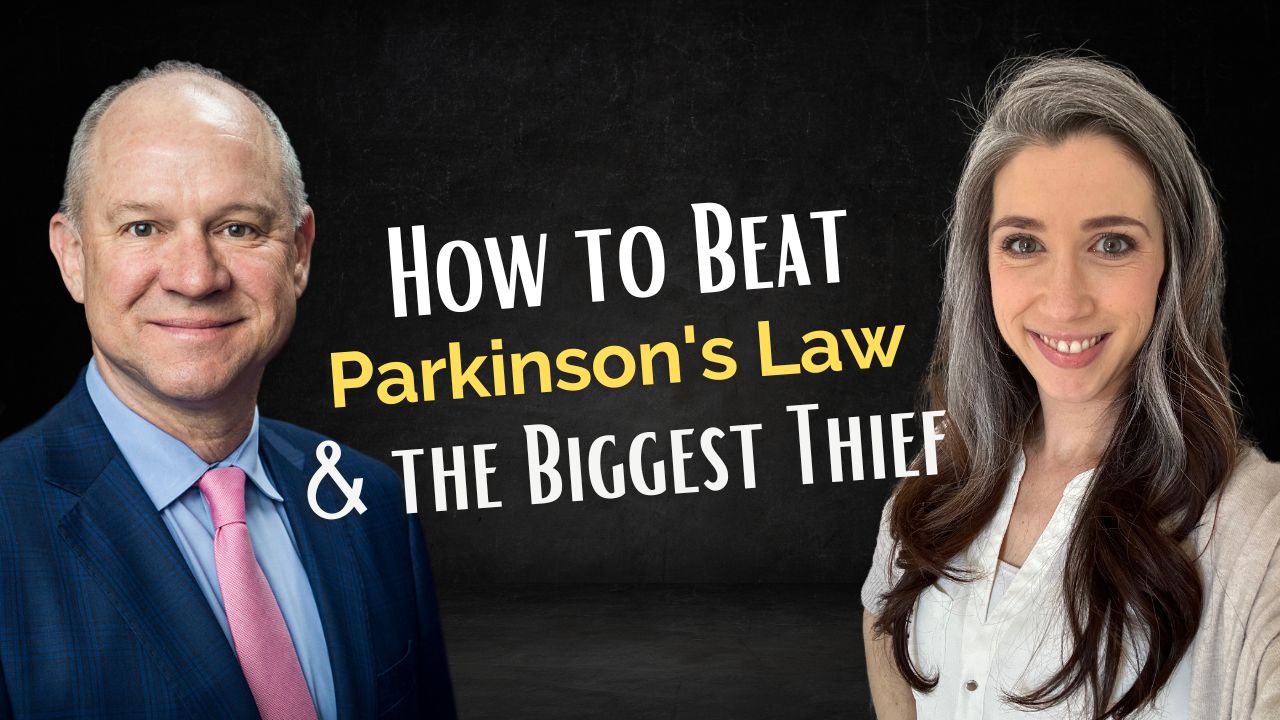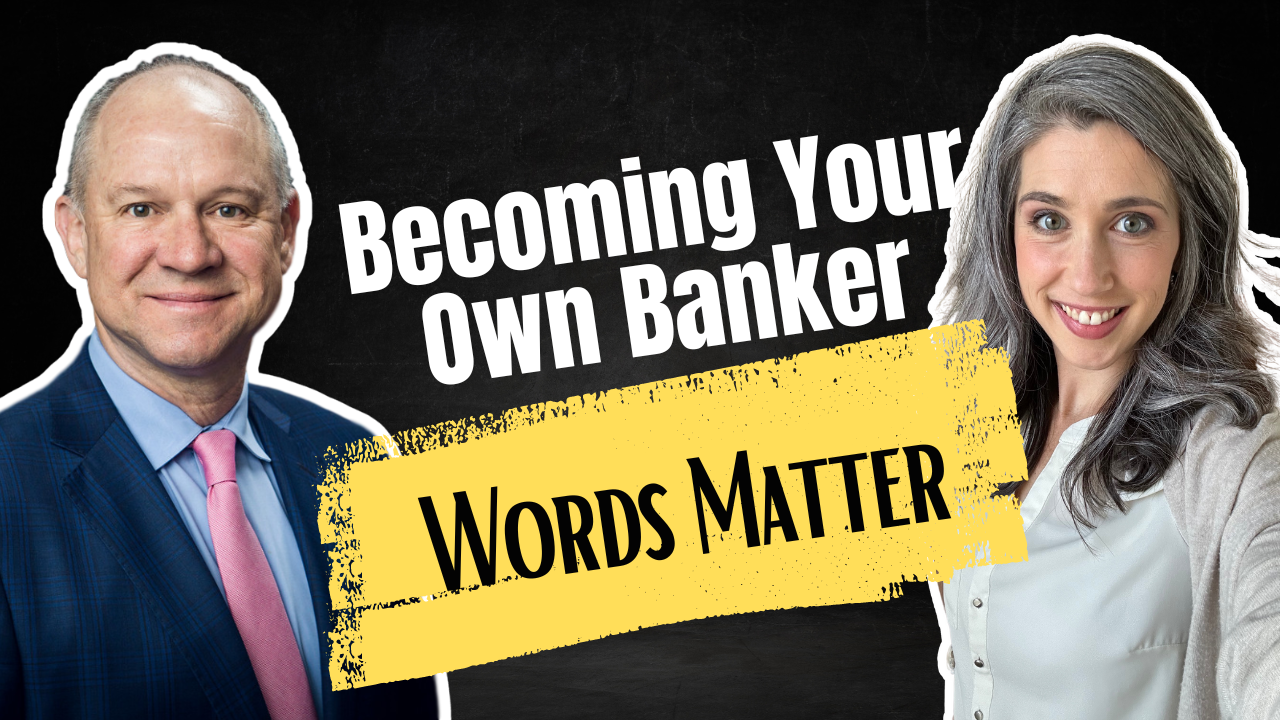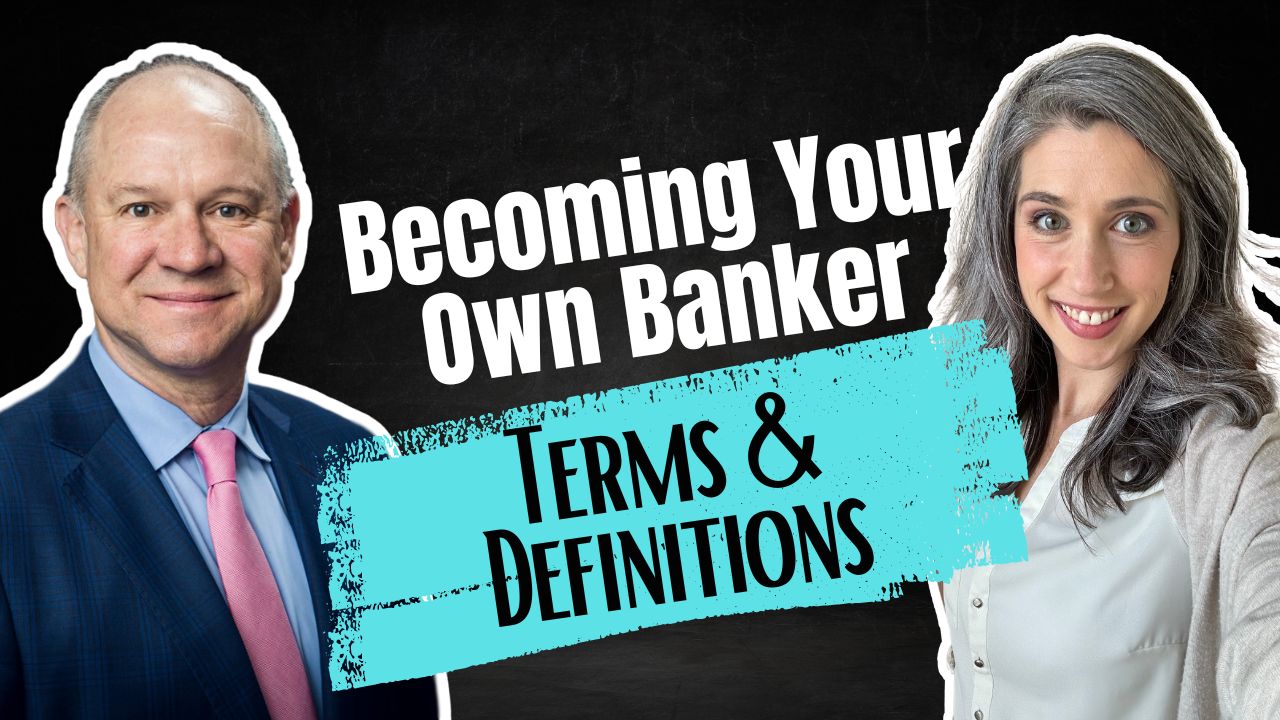
Becoming Your Own Banker, Part 7: How to Beat Parkinson’s Law and the Greatest Thief
Even if you make lots of money, there’s a central flaw in human nature that prevents most people from handling, managing, and keeping it. If you conquer that, there are forces against you. In part 7 of the “Becoming Your Own Banker” series, we’ll deep dive into the inner conflict of Parkinson’s Law, and the outer battle of taxation … and show you how to conquer both.
Join us as we continue the conversation about whole life insurance and the Infinite Banking Concept through Nelson Nash’s book, “Becoming Your Own Banker,” today!
[power press]
Table of Contents
Re-Think Your Thinking
When you think you know it all, you close yourself off to learning. This can be a dangerous path, because there’s a wealth of knowledge in the world, and you might miss out on major, powerful changes.
This is especially applicable to the financial advice you see and hear out in the world. Don’t take it at face value. It’s important to take responsibility for your thoughts and question everything. Examine it, educate yourself, and get to the truth. This is how you find what works, and make progress.
[6:00] “I think if [people are] really trying to be successful with their families and whatever that means to them… you really need to start by looking inside yourself and taking personal responsibility.”
No one is going to take responsibility for you. It’s up to you to decide how you’re going to process and apply the information you hear, including separating facts from fiction. Your knowledge and your mindset are your human capital, and it’s how you apply that capital to your actions that drives success.
[7:57] “When anything is seen as not as measurable, not as concrete, not as data-driven, not as analytical, not as rational… not as objective, it seems like it can’t be as important. But the truth is [that] what’s inside of us is really what drives our success or lack of success.”
What is Parkinson’s Law?
[16:38] “Parkinson’s Law, at its core, states that work expands to meet the time envelope allowed.”
In other words, whatever time you have available, you will naturally fill with work. So if you give someone a 3-day deadline or a 30-day deadline, that person will use the full time to accomplish that objective. Humans can be more efficient or more innovative because they’ll either expand or shrink the scope of a project based on the time allotted.
What Nelson did is recognize how this law applies to money. When we have money, our expenses rise to meet that. So the more you earn, the more you spend. If you’ve ever gotten a raise and felt like it disappeared, you can thank Parkinson’s law. It’s human to want to spend money.
Yet, we cannot keep chasing higher incomes in order to buy more things. It’s impossible to get ahead that way, because of Parkinson’s law–you will always find ways to consume if you have that mindset. If you really want to get ahead, you must learn to delay gratification and resist the temptation to spend everything you have. You must live below your means.
Why Your Income Doesn’t Matter
The thing about Parkinson’s Law is that we are all capable of succumbing to it, regardless of income. Whether you make $20,000 or $200,000, or even beyond that. If you think you can out-earn Parkinson’s Law, then you’ve already adopted that mindset.
The problem is that when you believe you can just earn more money to make our spending issues disappear, that mindset sticks with you. So if you get a $50,000 raise, your benchmark just changes. Suddenly you find yourself with an extra car payment or a new subscription. It’s human to want to spend, but you’ve got to overcome that to get ahead.
As Nelson would often say, a luxury once enjoyed feels like a necessity. It’s hard to give up luxuries once you experience them, which explains why people struggle to cut back on spending. You could live your whole life without air conditioning, but once you have it, you’re loathe to let it go. And this applies to anything.
How Does Parkinson’s Law Affect Infinite Banking?
The point of Infinite Banking is to save money and store that money in whole life insurance policies. Saving this money takes discipline. Oftentimes, people like the idea of Infinite Banking, but they’re concerned they don’t have the income yet. So they tell themselves they’ll buy insurance once they make more money.
Unfortunately, because of Parkinson’s Law, these same people have a tendency to make more money, and still not have enough left over to put into a policy. Until you address the thinking behind Parkinson’s Law and work to create better money habits, this will continue to be the case, regardless of your income.
It takes discipline and work, but once you create that for yourself, you put yourself in a position of capital that can work in your favor for the rest of your life and generations to come.
[30:07] “We’re not talking about a miserly way of living that makes you a miserable human. I mean, that’s not what we’re talking about. What we are saying is that it’s really important to recognize you don’t have to keep up with the Joneses. You’re not in competition with anyone else—you don’t have to have the best boat and the nicest car and the newest remodel in your kitchen in order to be a successful human that’s worthy and deserving of respect.”
Book A Strategy Call
Do you want to coordinate your finances so that everything works together to improve your life today, accelerate time and money freedom, and leave the greatest legacy? We can help! Book an Introductory Call with our team today https://themoneyadvantage.com/calendar/, and find out how Privatized Banking, alternative investments, or cash flow strategies can help you accomplish your goals better and faster. That being said, if you want to find out more about how Privatized Banking gives you the most safety, liquidity, and growth… plus boosts your investment returns, and guarantees a legacy, go to https://privatizedbankingsecrets.com/freeguide to learn more.
Becoming Your Own Banker, Part 29: Words Matter
Ever felt like financial jargon was designed to confuse rather than clarify? Join us as we navigate the labyrinth of financial terminology, particularly within the infinite banking sphere. It’s not just about learning by rote; it’s about cementing a rock-solid financial strategy based on clear, precise language. By dissecting common misconceptions, we aim to transform…
Read MoreBecoming Your Own Banker, Part 28: Infinite Banking Definitions
Have you ever felt like you’re on a financial hamster wheel, constantly spinning but never gaining traction? Join us as we unpack the epilogue and glossary of Nelson Nash’s “Becoming Your Own Banker.” It’s a journey through the intricate philosophy of IBC, as we cover Infinite Banking definitions that shows how effective money management can…
Read More


